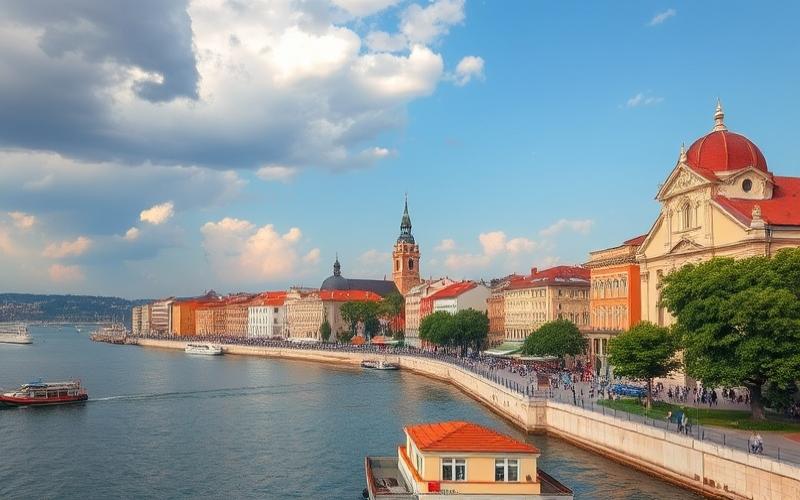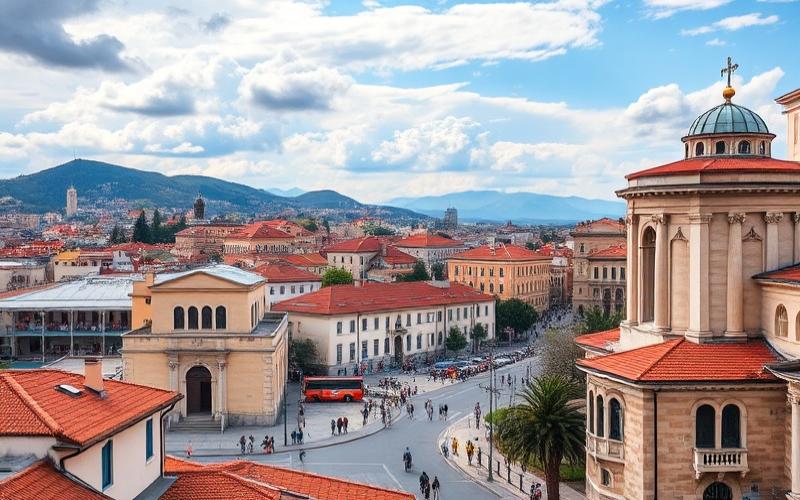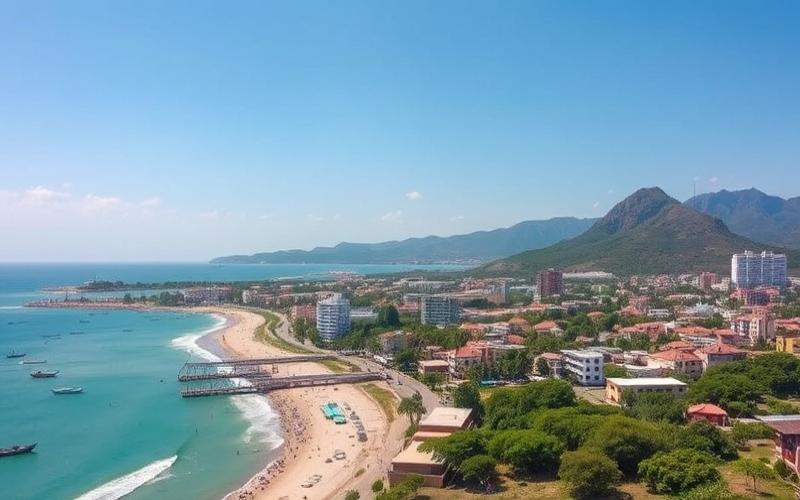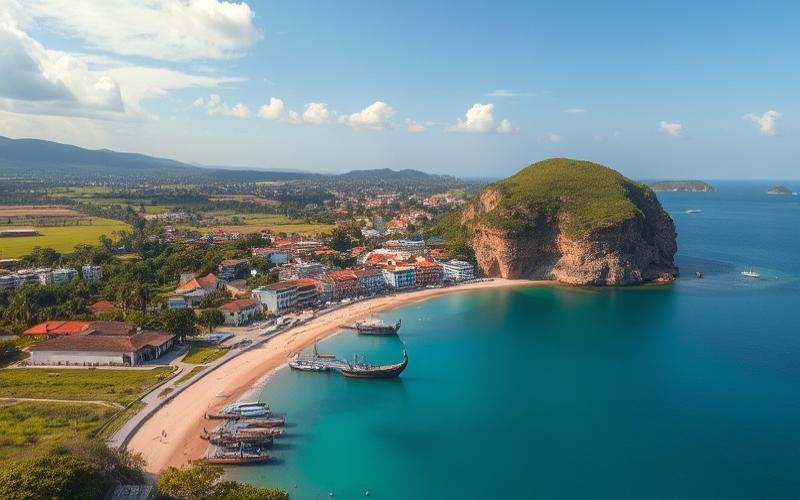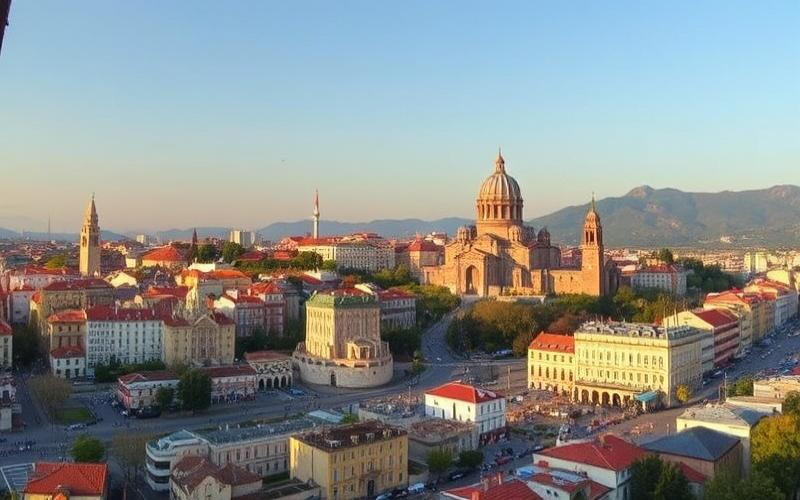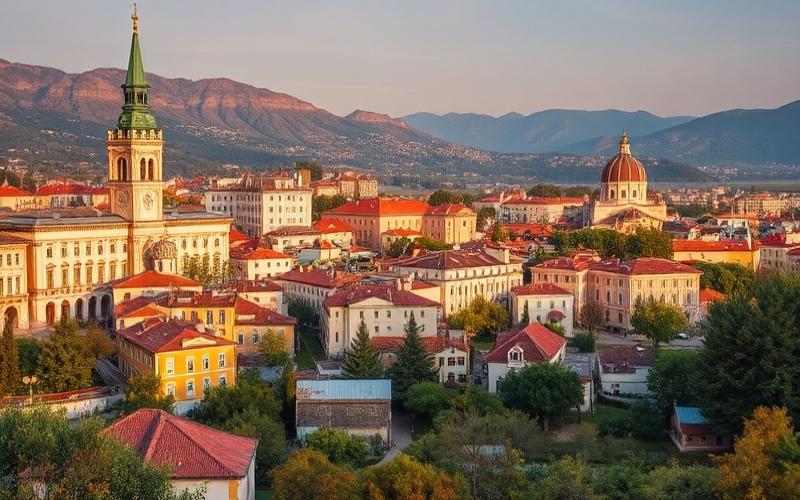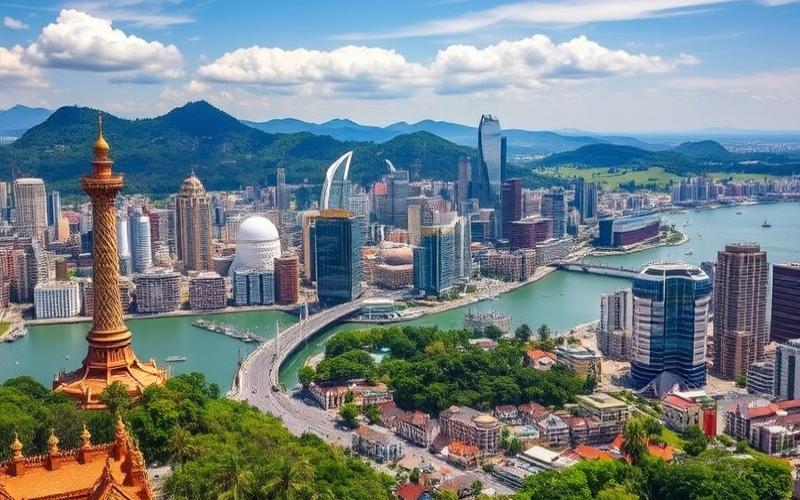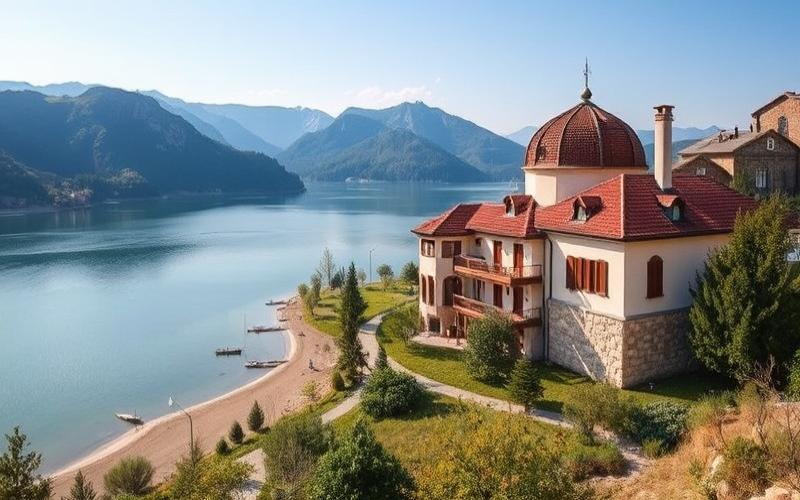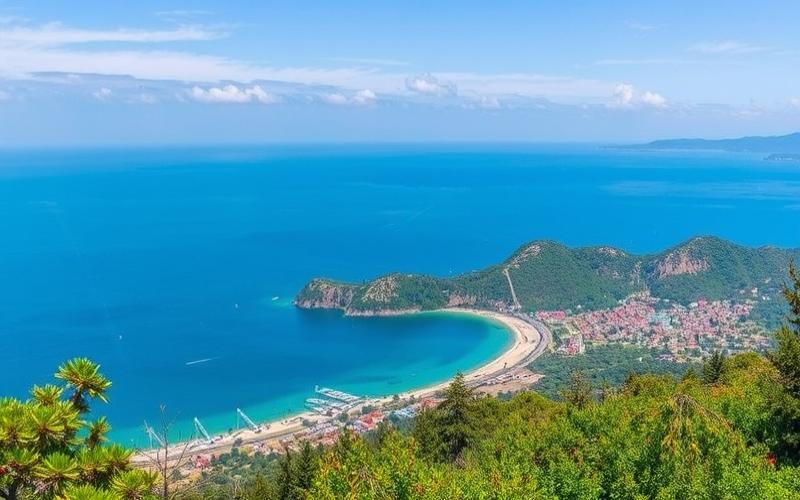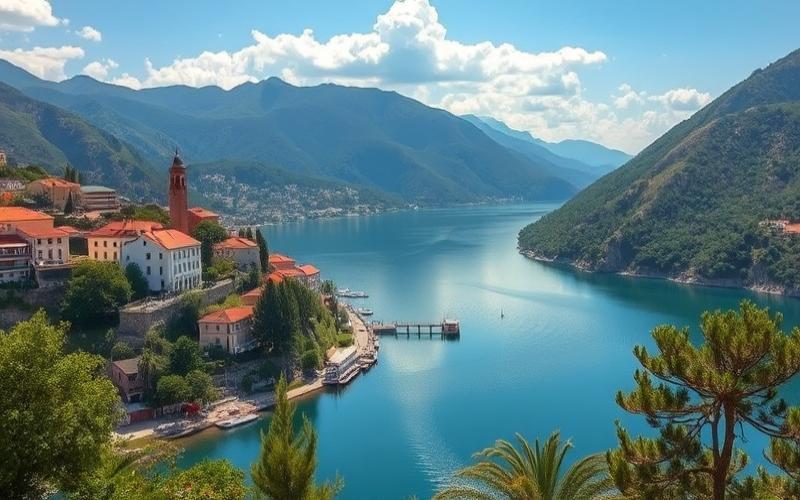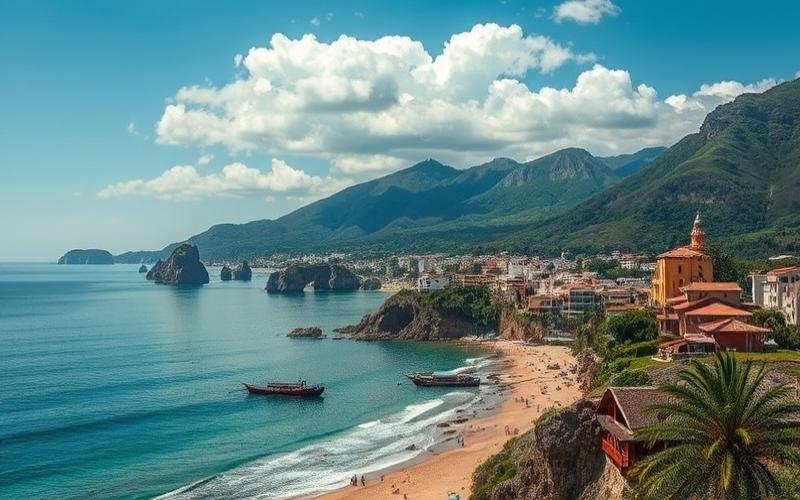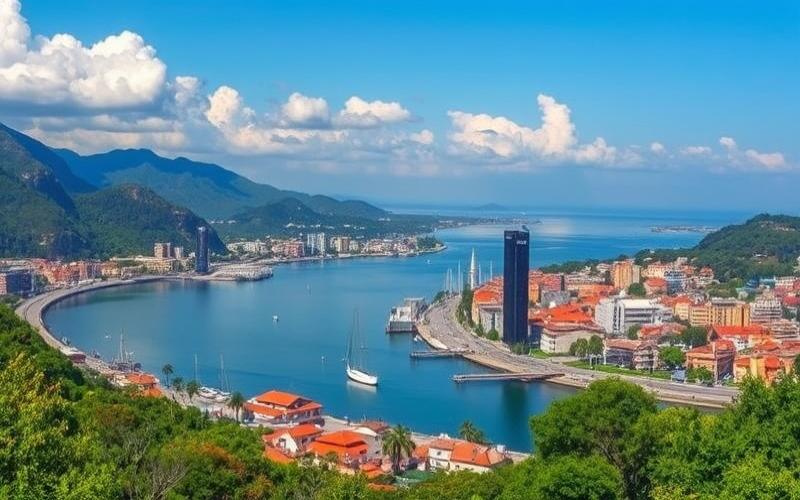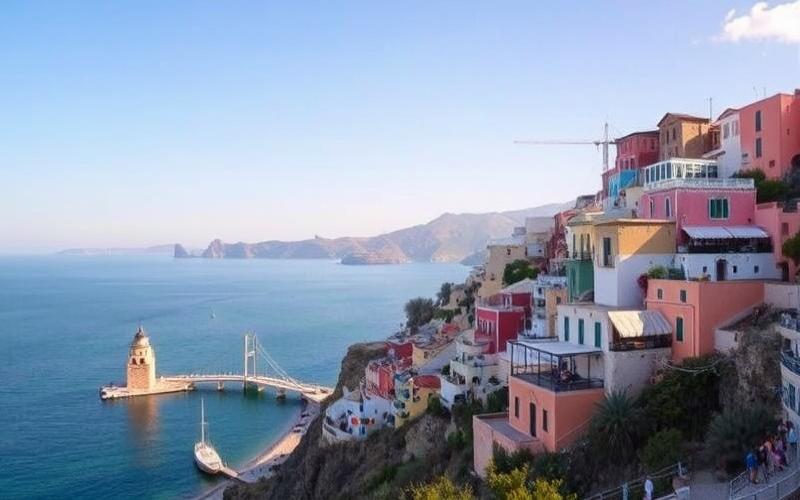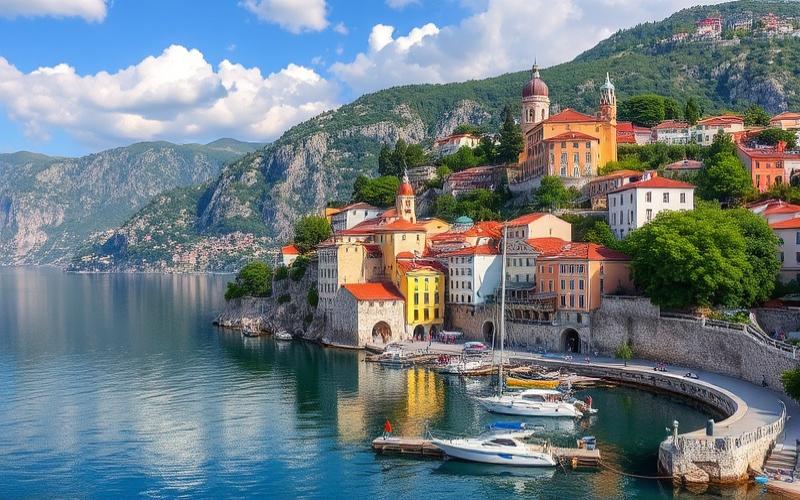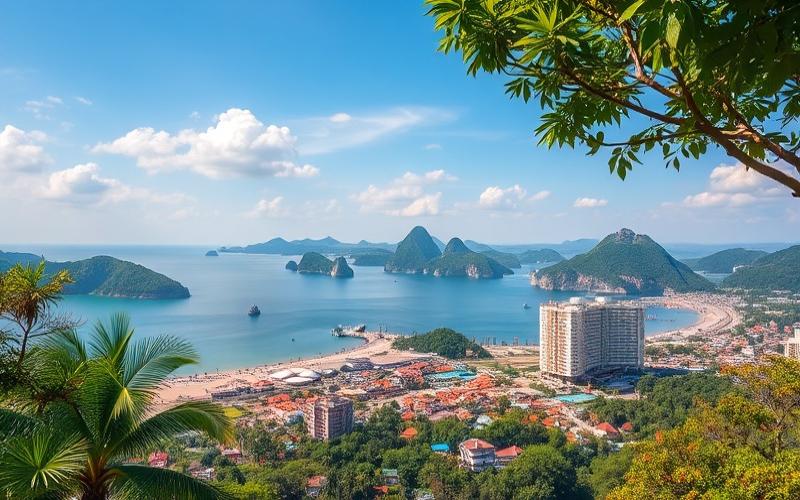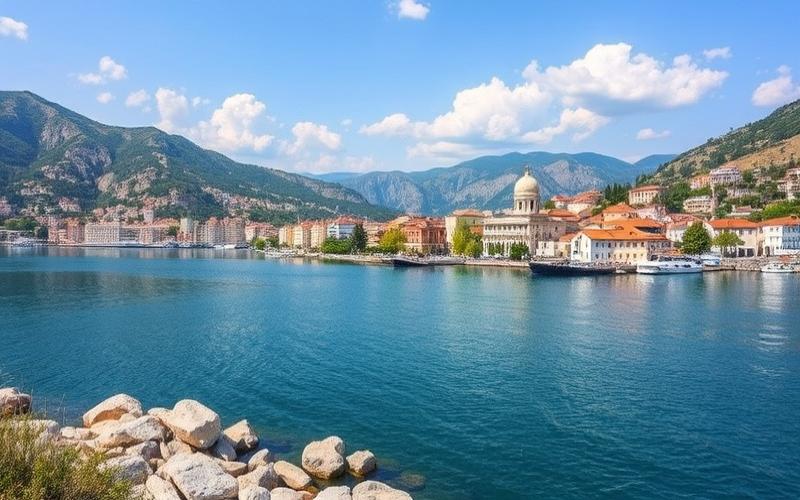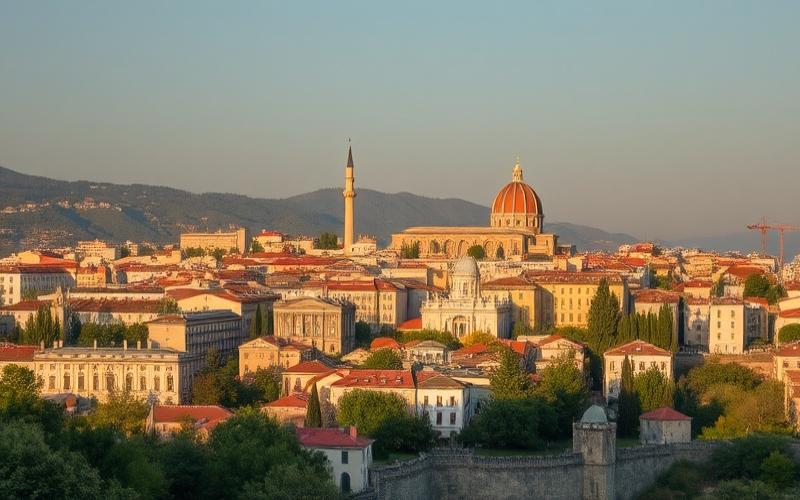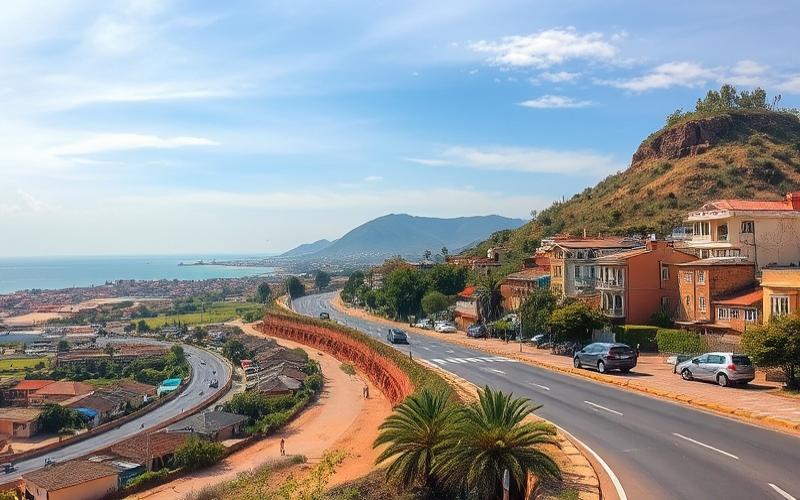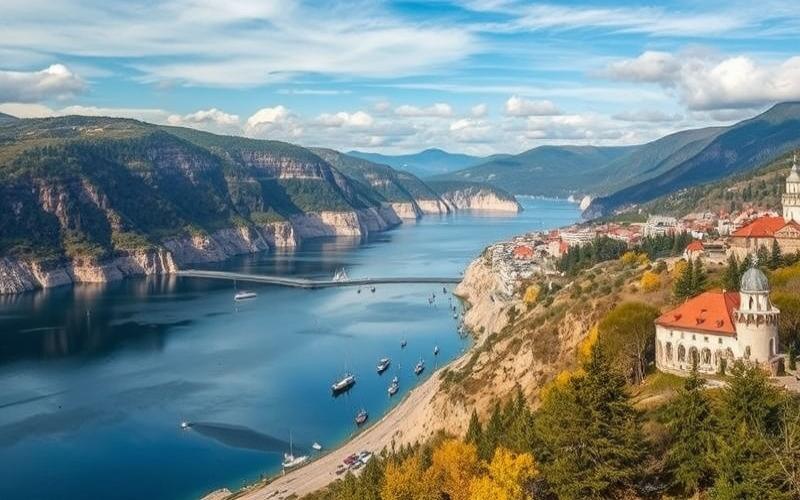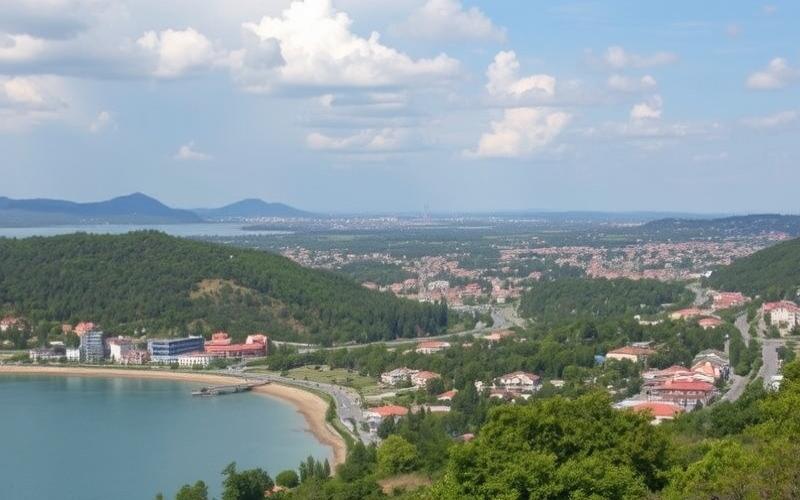
 Published on and written by Cyril Jarnias
Published on and written by Cyril Jarnias
North Macedonia Commits to Sustainable Real Estate
North Macedonia is decisively moving toward a more sustainable future with an ambitious transformation of the real estate sector, emphasizing eco-friendly practices. While navigating numerous economic and environmental challenges, the country is intensifying efforts to promote green real estate by aligning its standards with European and global guidelines.
Good to Know:
With targets set for 2025, the government has implemented attractive subsidies to encourage the adoption of green technologies.
These financial incentives aim not only to reduce the carbon footprint but also to position North Macedonia as a regional leader in green construction and architectural innovation.
Introduction to Green Real Estate in North Macedonia
Green real estate is gaining increasing importance globally, driven by the need to combat climate change, reduce carbon emissions, and improve building energy efficiency. This international trend is now reflected in North Macedonia, where the real estate sector is booming, particularly in major cities like Skopje and Ohrid.
Key Motivations for Adopting Sustainable Real Estate Practices
- Reduction of CO₂ emissions
- Improved energy efficiency
- Meeting growing expectations from environmentally conscious international investors
- Rapid modernization of the existing real estate portfolio
Current Trends in the Macedonian Market
| Trend | Implementation or Technology Used |
|---|---|
| Low-energy construction | Enhanced insulation, triple glazing |
| Use of renewable energy | Solar panels on new projects |
| Smart management | Home automation systems to optimize heating/lighting |
The sector also benefits from innovations such as the integration of eco-friendly materials and the progressive implementation of energy certifications.
Key Development Players
- Local developers gradually adopting green standards
- Foreign investors attracted by political and fiscal stability
- Companies specializing in sustainable engineering
Government or Private Initiatives
The government promotes the sector through attractive tax incentives (around 10% rate for companies), simplifies administrative procedures via a one-stop shop, and develops several special economic zones with specific advantages. These measures facilitate rapid business creation and encourage green modernization.
Main Challenges Encountered
- Relative lack of local technical expertise in certain advanced green technologies
- Increased need for initial funding to adapt or renovate the existing portfolio
- Still limited public awareness of the real benefits of green building
To address these obstacles, several strategies are being implemented:
- Targeted professional training
- Partnerships with European experts
- Public campaigns on long-term economic benefits (energy cost reduction)
- Partial subsidies for energy renovation
North Macedonia is thus part of an ambitious regional dynamic aiming to reconcile rapid economic growth with increased respect for modern environmental standards.
Good to Know:
Green real estate in North Macedonia is gaining increasing interest as the country commits to reducing carbon emissions and improving energy efficiency. The development of this sector is primarily motivated by the need to construct sustainable buildings that minimize environmental impact. Technological innovations such as smart energy management systems and eco-friendly construction materials are increasingly being adopted. Government initiatives, like subsidies and tax incentives, along with private investments, are driving this transition. However, the country faces challenges such as the high implementation cost of these technologies and the need to strengthen local expertise. Some organizations are collaborating with international players to overcome these obstacles, thereby promoting a more robust and sustainable green market.
Green Building Standards in North Macedonia
Main green building standards in force in North Macedonia:
- Energy Efficiency Standards:
- New constructions must meet strict energy performance criteria, with particular attention paid to reducing energy consumption and integrating technical solutions for building thermal optimization.
- Requirements are imposed to limit thermal losses and promote the use of high-performance systems for heating, ventilation, and air conditioning.
- Sustainable Materials:
- The use of certified eco-friendly or recycled materials is encouraged in new real estate projects.
- Priority is given to local materials with low environmental impact throughout their life cycle, which also promotes the circular economy.
- Reduced Carbon Footprint Requirements:
- Projects must incorporate strategies to limit direct and indirect emissions, including through:
- Adoption of renewable energies
- Use of certified wood or other bio-based materials
- Responsible management of waste generated during construction
- Projects must incorporate strategies to limit direct and indirect emissions, including through:
Recent or Planned Legislation for 2025 Influencing Green Building Practices:
| Year | Key Provision | Expected Effect |
|---|---|---|
| 2025 | Revision of National Building Code (planned) | Strengthening mandatory criteria for overall energy performance and explicit integration of carbon emission requirements |
| 2024 | Progressive alignment with European “Fit for 55” legislative package | Accelerating transition toward a low-carbon real estate portfolio |
National guidelines heavily rely on European directives to facilitate gradual harmonization ahead of future EU membership.
Eco-Certifications Recognized in the Country:
- Regional certificates inspired by BREEAM/LEED, adapted to the local context.
- Growing adoption of the European “Nearly Zero-Energy Building (nZEB)” label for new public buildings since early 2024.
Responsible Organizations:
- Ministry of Environment and Physical Planning: development, regulatory control, and permit issuance.
- National Energy Efficiency Agency: technical monitoring, mandatory energy audits.
- Municipal inspections: regular local verification during construction.
Alignment with Global Environmental Goals and Impacts on the Real Estate Market:
Current standards directly contribute to commitments under the national climate change framework (NDC targets), while supporting:
- Better resilience to climate risks
- Significant reduction in national energy consumption
- Attractive positioning for international investors sensitive to ESG issues
The regulatory upgrade is expected to lead to:
- A gradual but notable increase in initial costs related to green construction
- Increased value in the rental/transaction market due to growing demand for properties with high environmental standards
Good to Know:
In North Macedonia, green building standards are based on strict energy efficiency criteria and the use of sustainable materials, aiming to reduce the carbon footprint of new constructions. The country follows European Union directives, although not yet a member, and is implementing anticipated legislation for 2025 that strengthens these requirements, particularly through the energy law that mandates energy performance improvements for new and renovated buildings. Eco-certifications like BREEAM and LEED are gaining popularity, while the Energy Agency of North Macedonia plays a key role in regulating and enforcing these standards. These measures align with global environmental goals, posing transformative potential for the local real estate market, which could see increased attractiveness and value for construction projects complying with these standards.
The strengthened requirements planned for January 2025 are expected to position North Macedonia among pioneering emerging markets in sustainable green building in its region.
Subsidies and State Aid for Sustainable Real Estate in North Macedonia
Types of Subsidies and State Aid in North Macedonia for Sustainable Real Estate
- Direct grants for energy renovation of residential and commercial buildings
- Low-interest loans for green construction or renovation
- Tax incentives (property tax reductions, temporary VAT exemptions on eco-friendly materials)
- International funding dedicated to green investments (e.g., €50 million allocated by the French Development Agency specifically for sustainable real estate projects)
Government Goals
The government aims for a significant reduction in the national carbon footprint, particularly from the building sector which represents a major share of emissions. Official targets include:
- Gradual reduction of emissions related to heating and air conditioning.
- Systematic improvement of energy efficiency in new and existing constructions.
- Increase in the real estate portfolio classified as “low consumption” or meeting European energy standards.
Implemented Financing Mechanisms
| Mechanism | Description |
|---|---|
| Low-interest loans | Offered through partner banks or national agencies to finance green renovations |
| Direct grants | Lump-sum financial aid covering up to 30%–40% of eligible costs |
| Tax incentives | Tax relief for developers using certified eco-friendly materials |
| International partnerships | Funds granted by institutions like AFD to support local green investments |
Eligibility Criteria
For individuals:
- Be an owner-occupier or landlord
- Present a project compliant with national/EU energy standards
- Provide quotes and plans validated by a licensed professional
For businesses/developers:
- Legal registration in North Macedonia
- Project involving new buildings or major renovations with recognized eco-label
- Commitment to use at least 50% certified sustainable/locally produced materials
Additional specific requirements may include:
- Certificates proving no criminal record (for certain programs)
- Detailed plans/thermal study prior to construction
- Financial justifications demonstrating ability to cover remaining costs after subsidy
Concrete Examples of Funded Projects
| Project | Type | Supported Measures | Observed Impact |
|---|---|---|---|
| Social housing renovation | Collective residential | Insulation, window replacement/efficient heating | Energy consumption decrease >25% |
| Passive office construction | New tertiary | Local wood structure, solar panels | European low-energy certification |
| East Skopje pilot district | Mixed-use | Green roofs, rainwater harvesting | National replicability |
Potential Impact on the Green Real Estate Market by 2025
Current mechanisms are expected to lead to a notable increase in the number of buildings compliant with European standards by 2025. Anticipated outcomes include:
- Gradual but clear rise in annual volume of “green” construction sites
- Measurable decrease in overall urban energy consumption
- Acceleration toward a market dominated by developers specializing in sustainability
International financial support coupled with these national mechanisms reinforces this positive dynamic for both private and public investors.
Good to Know:
In North Macedonia, the government has implemented several subsidies and state aid programs to promote sustainable real estate as part of its ambition to reduce carbon footprint and increase building energy efficiency by 2025. Financing mechanisms include low-interest loans, direct grants, and tax incentives, specifically designed to encourage developers to use eco-friendly practices and materials. Eligibility criteria vary, but individuals and businesses must demonstrate commitment to sustainability, often through energy certifications. A notable example is the “Verde” residential project, which benefited from subsidies for solar panel installation, reducing its energy costs by 30%. Such initiatives strengthen the green real estate market, making this sector more attractive and accessible, with significant development potential in the coming years.
BREEAM Certification: A Label for the Future
The BREEAM certification (Building Research Establishment Environmental Assessment Method) is an international benchmark founded in the UK in 1990, becoming one of the major standards for assessing building environmental performance. Its main objective is to promote architectural design and building management that respect sustainable development principles, particularly by reducing ecological footprint throughout a building’s life cycle. To date, over 500,000 buildings in more than 80 countries are BREEAM certified, underscoring its growing importance in the global real estate sector.
BREEAM applies to various building types: residential, commercial, industrial, as well as educational and healthcare establishments. This certification stands out for its comprehensive approach integrating human (comfort and health), energy, and environmental considerations.
Criteria Assessed by BREEAM Include:
- Energy Management
- Rational Water Use
- Choice of Sustainable Materials
- Waste Reduction
- Responsible Site Management
- Occupant Health and Well-being (indoor air quality)
- Biodiversity (land use & ecology)
- Soft Mobility (access to alternative transport)
- Reduction of Polluting Emissions
| Criterion | Main Objective |
|---|---|
| Energy | Reduce consumption & promote renewable energy |
| Water | Limit consumption & optimize management |
| Materials | Prioritize materials with low environmental impact |
| Waste | Optimize sorting/recycling from construction phase |
| Health/Well-being | Ensure thermal/visual/acoustic comfort & indoor air quality |
| Biodiversity | Preserve/enhance green spaces & local ecosystems |
Facing climate urgency and new societal expectations, BREEAM certification is gaining importance in green real estate projects in North Macedonia. Since 2023–2025, several national initiatives aim to align the sector with European standards: incentives to reduce carbon emissions from new/renovated buildings; progressive integration of requirements related to green certifications for accessing public markets or obtaining certain permits; institutional support to raise awareness among local developers/investors.
Benefits of a BREEAM-Certified Building
- Increased valuation in the real estate market
- Significant reduction in energy/operational costs
- Substantial decrease in carbon footprint
- Enhanced attractiveness to ESG/socially responsible investors
- Early compliance with future national/European environmental regulations
In North Macedonia, various financial incentives have recently emerged to accelerate this transition: direct grants for “green” building permit applications; temporary tax relief on property or real estate VAT if label obtained before final delivery; facilitated access to certain “sustainable development” credit lines supported by public institutions or international partner banks.
“The rapid development of a green real estate policy based on BREEAM foreshadows a profound transformation: not only do these standards concretely improve the existing portfolio, but they also position North Macedonia among regional pioneers toward a resilient low-carbon economy. By 2025—and beyond—we can expect every major project to be conceived from its inception according to these structuring sustainable requirements.”
Good to Know:
BREEAM certification (Building Research Establishment Environmental Assessment Method) is a British assessment standard for sustainable buildings, aiming to reduce environmental impacts and improve occupant comfort and well-being. It evaluates various criteria such as energy management, water use, sustainable materials, biodiversity, and indoor comfort. In North Macedonia, interest in BREEAM is growing with environmental policies planned for 2025 that encourage green real estate projects. Obtaining this certification offers significant benefits to developers, owners, and investors, such as property valuation, increased energy efficiency, reduced carbon footprint, and compliance with future regulations. Macedonian authorities also plan financial incentives to stimulate certified projects, aiming to make BREEAM a central pillar of the transition toward more ecological constructions by 2025.
Disclaimer: The information provided on this website is for informational purposes only and does not constitute financial, legal, or professional advice. We encourage you to consult qualified experts before making any investment, real estate, or expatriation decisions. Although we strive to maintain up-to-date and accurate information, we do not guarantee the completeness, accuracy, or timeliness of the proposed content. As investment and expatriation involve risks, we disclaim any liability for potential losses or damages arising from the use of this site. Your use of this site confirms your acceptance of these terms and your understanding of the associated risks.



